Disclosure: This article contains affiliate links. We may earn a commission from purchases at no extra cost to you, which helps our travel content.
There's something profoundly humbling about locking eyes with a 400-pound silverback gorilla in the misty forests of Rwanda's Volcanoes National Park. After three decades in the corporate energy sector, I've sat across from countless powerful figures, but nothing prepared me for the soul-stirring connection I felt during my two-week solo journey through Rwanda's volcanic highlands. This wasn't merely a bucket-list wildlife encounter—it became an unexpected pilgrimage that reconnected me with both my Japanese ancestral wisdom and my own inner strength. The Japanese concept of shinrin-yoku (forest bathing) took on new meaning as I trekked through bamboo forests and volcanic terrain, finding unexpected parallels between mountain gorilla society and the leadership principles I've cultivated throughout my career. Join me as I share how Rwanda's endangered gentle giants offered profound lessons in presence, purpose, and perspective that no executive retreat ever could.
Preparing for the Journey: More Than Just Packing
When I decided to trek solo in Rwanda at 53, I approached it with the same methodical planning I bring to our company's renewable energy projects. This wasn't just about packing the right gear—it was about preparing mind, body, and spirit for an encounter that would demand everything from me.
Physical preparation began six months before departure. Living in Oklahoma's relatively flat terrain meant I needed targeted conditioning for Rwanda's 8,000+ foot elevations. I incorporated twice-weekly stair climbs at our office tower and weekend hikes with a weighted pack. My trekking poles became constant companions during training and proved invaluable on the actual gorilla treks.
Mental preparation was equally important. I devoured books about gorilla conservation, Rwandan history (including the devastating genocide), and Dian Fossey's pioneering work. Understanding the cultural context and conservation challenges deepened my eventual experience immeasurably.
The most meaningful preparation, however, came through reconnecting with my father's Japanese heritage. I practiced meditation techniques from my childhood and incorporated the mindfulness principles that had helped me overcome corporate burnout years ago. In Japanese culture, there's profound respect for nature's wisdom—something I would soon experience firsthand in the presence of gorillas.
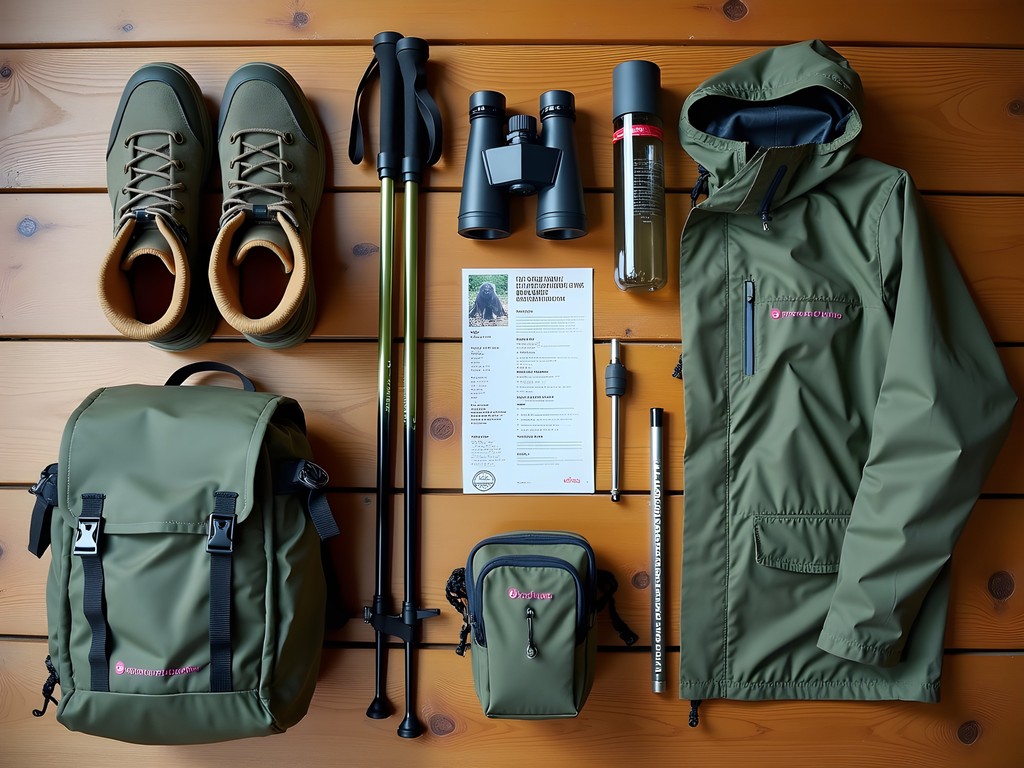
💡 Pro Tips
- Begin altitude training at least 3-4 months before your trek if you live at low elevation
- Practice hiking with your actual daypack fully loaded to build specific strength
- Read books by Dian Fossey and local Rwandan authors to understand both conservation efforts and cultural context
The Luxury Base: Sustainability Meets Comfort
After a career advocating for renewable energy, I'm perpetually conscious of my environmental footprint, especially in ecologically sensitive areas. Selecting accommodations near Volcanoes National Park became an exercise in finding the intersection of sustainability, luxury, and purpose.
I chose Bisate Lodge, an architectural marvel nestled within an eroded volcanic cone. The spherical, thatched structures echo Rwanda's traditional design while incorporating sophisticated sustainability features. My villa—one of just six—offered panoramic views of Bisate's reforestation project and the mist-shrouded volcanoes beyond. The property has planted over 100,000 indigenous trees, creating a buffer zone that extends gorilla habitat while absorbing carbon.
What impressed me most wasn't the expected luxury touches (though the private deck, fireplace, and farm-to-table cuisine were exceptional), but rather the lodge's integration with local communities. Staff came predominantly from surrounding villages, and the property's conservation initiatives included tangible benefits for local residents.
Each evening after trekking, I'd retreat to my villa's deck with my binoculars to watch golden monkeys swing through newly planted trees. This daily ritual became a moving meditation on regeneration—both of the land and of my own spirit. The lodge provided reusable water bottles and eliminated single-use plastics, aligning perfectly with the values I've championed throughout my corporate sustainability initiatives.
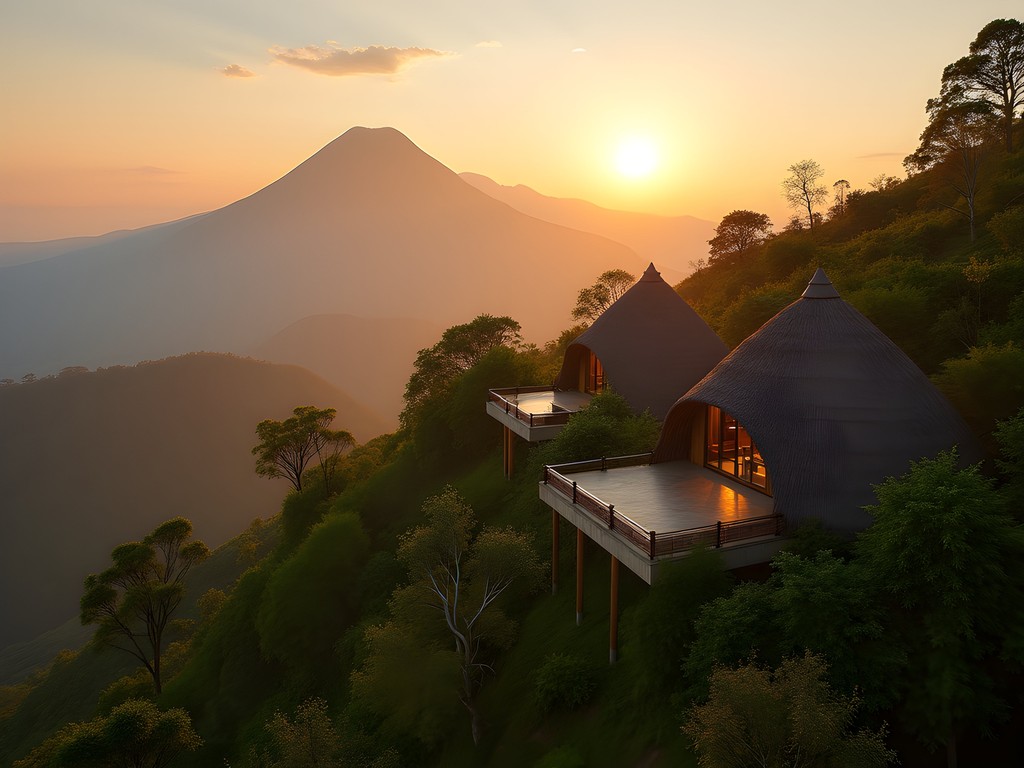
💡 Pro Tips
- Book accommodations at least 8-10 months in advance as luxury lodges near the park have limited capacity
- Request a villa with views of Mount Karisimbi for spectacular sunrise vistas
- Participate in the lodge's tree planting ceremony to contribute personally to habitat restoration
The Gorilla Trek: A Lesson in Presence
The morning of my first gorilla trek dawned misty and cool—nature's perfect setting for what would become a profound life experience. At park headquarters, I was assigned to the Hirwa family group with seven other trekkers and our guide, Jean-Paul, whose 15 years of experience would prove invaluable.
The trek began gently enough through terraced farmland before ascending into dense bamboo forest. As someone who's climbed corporate ladders for decades, I'm no stranger to challenging ascents, but this one demanded a different kind of strength. The altitude (around 8,500 feet) made each step deliberate, each breath intentional. The hiking boots I'd carefully broken in proved their worth on the slick, muddy terrain.
After nearly three hours of trekking, Jean-Paul's radio crackled—the trackers had located the gorilla family. We left our packs with the porters (hiring local porters is both helpful to you and economically beneficial to communities) and continued with just cameras. The forest grew silent as we approached, and then... there they were.
The Hirwa family sprawled before us in a small clearing—a massive silverback methodically stripping bamboo shoots, juveniles wrestling playfully, a mother nursing her infant with such tender attentiveness that I felt like an intruder witnessing something sacred.
What struck me most wasn't their size or strength, but their presence. These beings existed completely in the moment—no strategic planning, no quarterly targets, no digital distractions. The silverback's leadership style was subtle yet commanding, maintaining group harmony with minimal intervention. In 30 years of corporate leadership, I've rarely witnessed such effortless authority.
When a juvenile gorilla approached within feet of me, curious about my camera, our guide whispered to remain still and avoid eye contact. I lowered my gaze respectfully—a gesture that in gorilla society communicates peaceful intentions. In that moment of mutual acknowledgment across species, I experienced what the Japanese call yūgen—a profound awareness of the universe too deep for words.
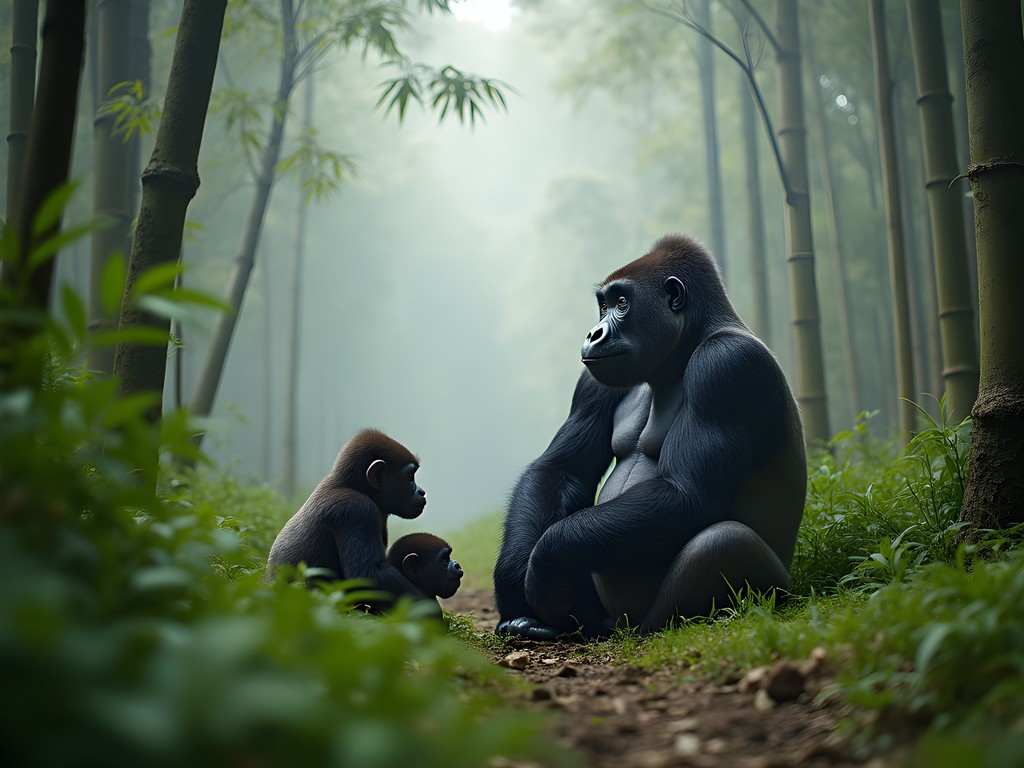
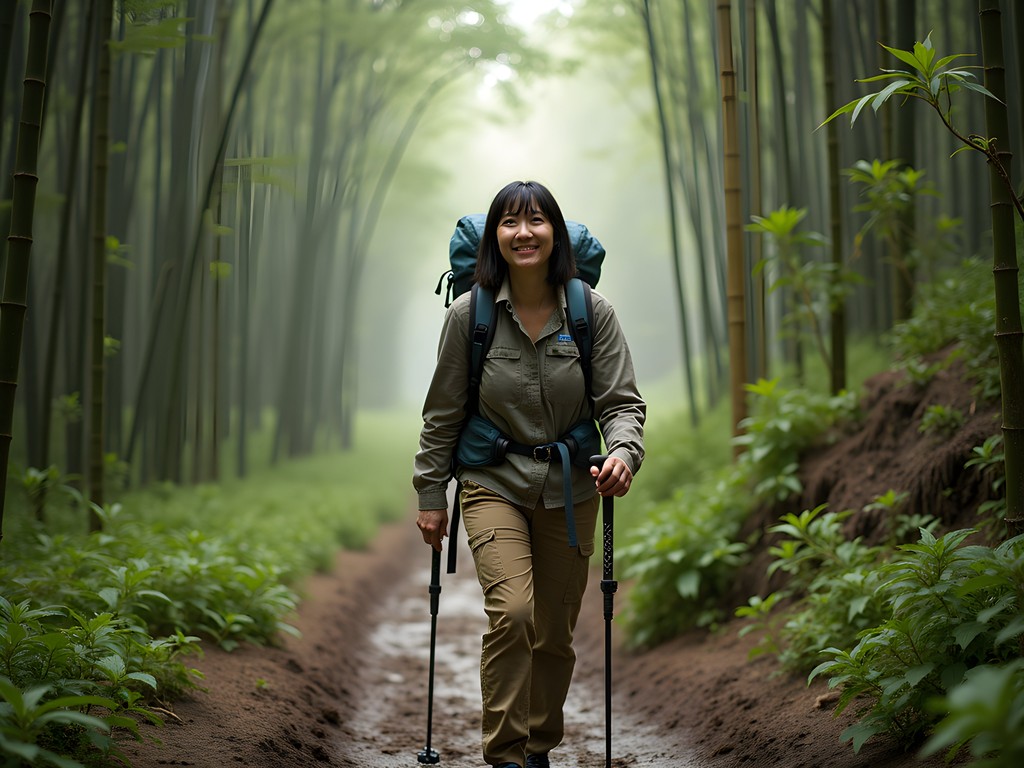
💡 Pro Tips
- Hire a porter even if you think you don't need one—it provides vital income to local communities and helps on challenging terrain
- Practice using your camera before the trek so you can operate it quickly and quietly
- When encountering gorillas, follow your guide's instructions precisely—maintain 7 meters distance unless they approach you
Beyond Gorillas: Rwanda's Conservation Renaissance
While mountain gorillas were undoubtedly the centerpiece of my journey, Rwanda's broader conservation story proved equally compelling. This nation—smaller than Maryland and devastated by genocide just 29 years ago—has transformed itself into Africa's leading conservation success story through visionary leadership and community involvement.
I dedicated several days to exploring other facets of Rwanda's environmental initiatives. At Akagera National Park in the country's eastern region, I witnessed the successful reintroduction of rhinos and lions after their local extinction. The park's solar-powered electric fence represents an elegant solution that protects both wildlife and surrounding agricultural communities—a balance of interests that resonated with my work in the energy sector.
Most impressive was Rwanda's community-based conservation model. Revenue sharing ensures that 10% of all national park fees go directly to surrounding communities, creating tangible incentives for protection rather than poaching. I visited several community enterprises near Volcanoes National Park—from honey cooperatives to traditional crafts—that provide sustainable livelihoods connected to conservation.
One afternoon, I joined a guided tour of the Iby'Iwacu Cultural Village, where former poachers now work as cultural ambassadors and conservation advocates. Their transformation parallels Rwanda's larger journey from tragedy to renewal—a powerful reminder that regeneration is possible at both individual and national scales.
During these explorations, my travel backpack proved invaluable, comfortably carrying water, rain gear, and photography equipment through varied terrain and unpredictable mountain weather. Its sustainable production practices aligned with the conservation ethos I was experiencing throughout Rwanda.
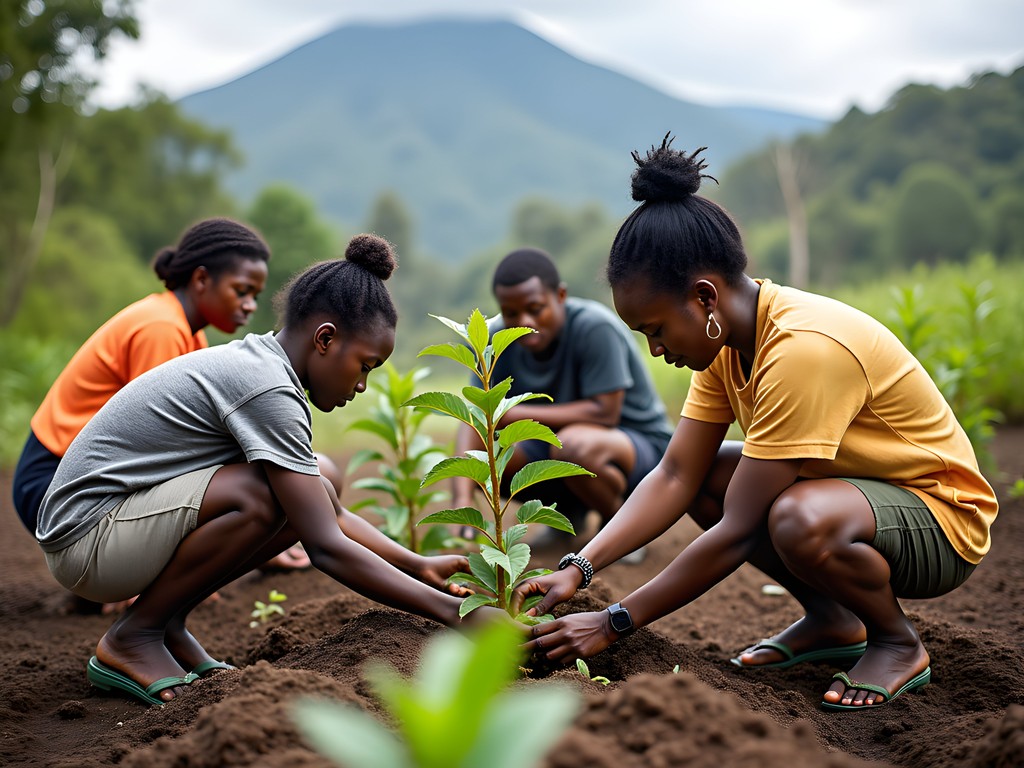
💡 Pro Tips
- Extend your Rwanda stay beyond gorilla trekking to support the country's broader conservation initiatives
- Visit community enterprises near the park to understand how conservation creates sustainable livelihoods
- Learn basic Kinyarwanda phrases—even simple greetings are deeply appreciated by locals
Finding Yourself in Solitude: The Solo Female Traveler Experience
Traveling alone as a 53-year-old woman in Rwanda proved to be a revelation—not because of challenges, but because of the unexpected ease and profound connections it facilitated. Rwanda's remarkable safety (it ranks among Africa's safest countries) allowed me to focus on inner exploration rather than security concerns.
My Japanese-American heritage often makes me a cultural bridge-builder, and this proved true in Rwanda as well. During solo meals at my lodge, I found myself invited to join conservation researchers, local guides, and fellow travelers—conversations flowing easily across backgrounds and generations. There's something about traveling alone that opens these doors of connection more readily than when we travel in established groups.
The solitude between these social moments became equally valuable. Each morning, I practiced meditation on my private deck, incorporating elements of both my father's Japanese mindfulness traditions and the present-moment awareness I'd observed in the gorillas. This daily practice helped me process the intense emotions that gorilla encounters inevitably stirred.
One particularly meaningful solo experience came during a hike to Dian Fossey's grave at the Karisoke Research Center. The challenging trail through dense forest provided time for reflection on Fossey's complex legacy and the parallels to my own professional journey. As a woman who's navigated male-dominated energy boardrooms for decades, I found unexpected kinship with Fossey's determination to protect what she valued, regardless of obstacles.
For women considering solo travel to Rwanda, I can offer reassurance that the country's excellent infrastructure, professional tourism industry, and cultural respect for women create an environment where you can focus on experience rather than logistics or safety. The personal growth that comes from navigating such powerful encounters independently is worth every moment of initial uncertainty.
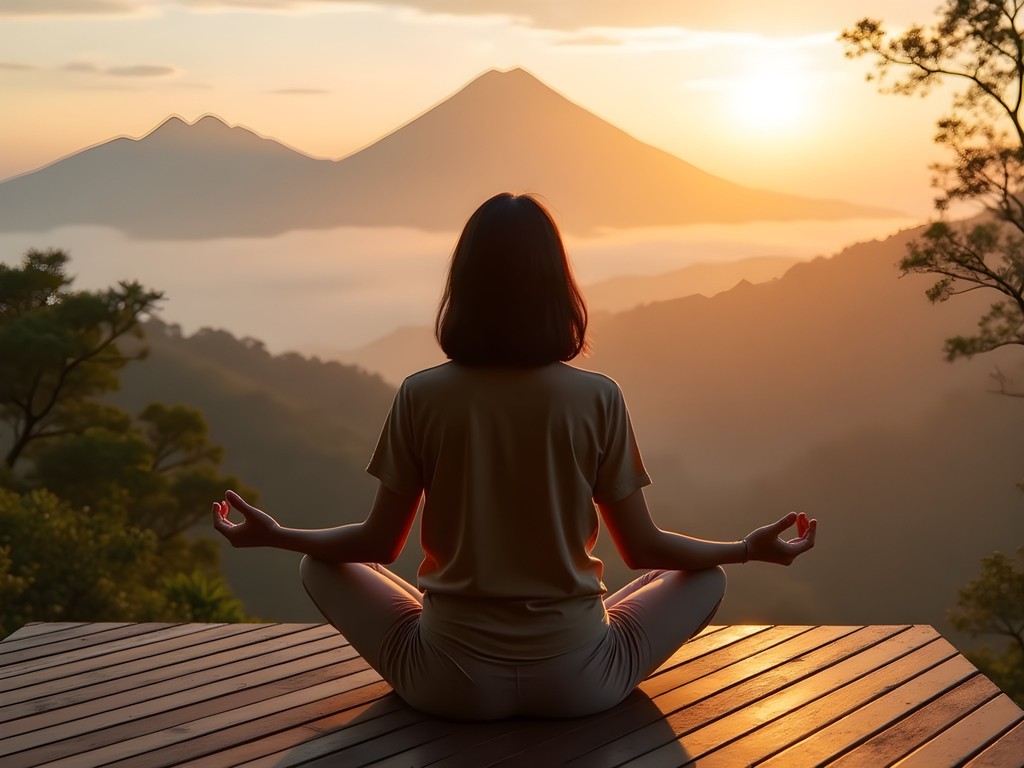
💡 Pro Tips
- As a solo traveler, consider booking a private vehicle and guide for greater flexibility with daily schedules
- Build relationships with lodge staff early in your stay—they'll provide invaluable local insights and enhance your safety
- Schedule intentional alone time to process the emotional impact of gorilla encounters
Final Thoughts
As my two weeks in Rwanda drew to a close, I realized I'd experienced far more than a wildlife encounter—I'd undergone a recalibration of perspective that I'm carrying back into both my personal life and my role as a corporate leader. The gorillas' absolute presence in each moment, the Rwandan people's remarkable resilience, and the tangible success of conservation efforts all offer powerful lessons for navigating our complex world. Perhaps most valuable was the reminder that true connection—whether across species or cultures—requires us to quiet our technological distractions and simply be present. Rwanda has shown me that regeneration is possible at every scale—from reforested hillsides to healing nations to renewed personal purpose. If you're considering this journey, especially as a solo traveler seeking deeper meaning, I can only say: the mountains are calling, and the gorillas have much to teach us all.
✨ Key Takeaways
- Rwanda's gorilla trekking offers profound leadership lessons through observing social structures and communication in gorilla families
- Solo travel in Rwanda is remarkably safe and rewarding for mature women travelers, offering unique opportunities for both connection and reflection
- Supporting Rwanda's community-based conservation model helps ensure gorillas' future while providing sustainable livelihoods
📋 Practical Information
Best Time to Visit
June-September (dry season) or December-February
Budget Estimate
$12,000-$20,000 for a 2-week luxury experience including permits
Recommended Duration
7-14 days (minimum 4-5 days for gorilla region alone)
Difficulty Level
Challenging Due To Altitude, Terrain And Emotional Intensity

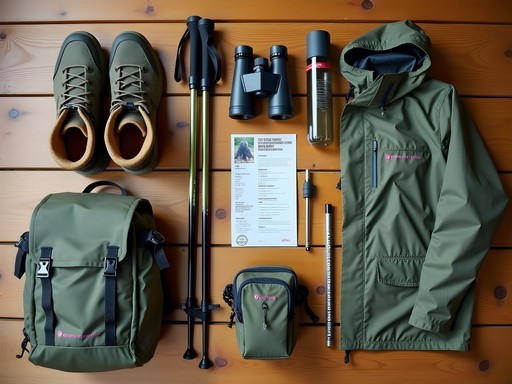
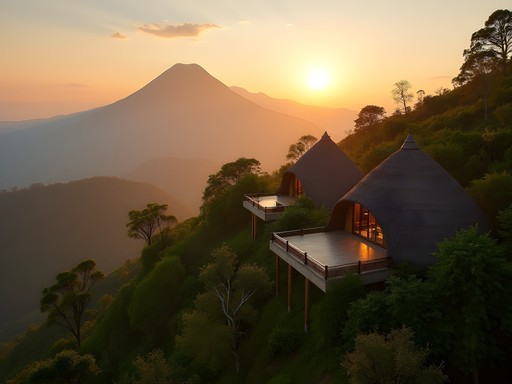
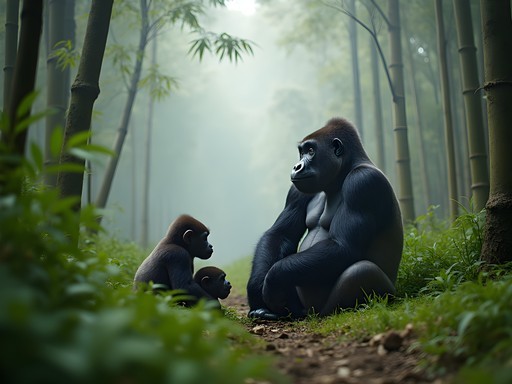
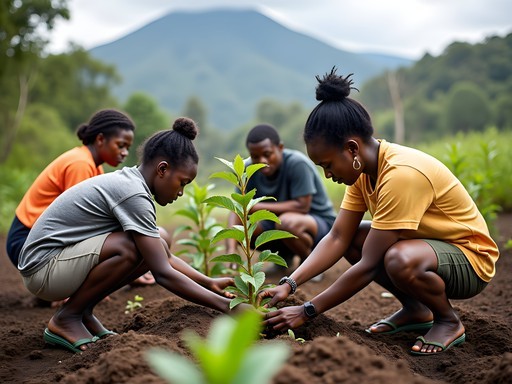
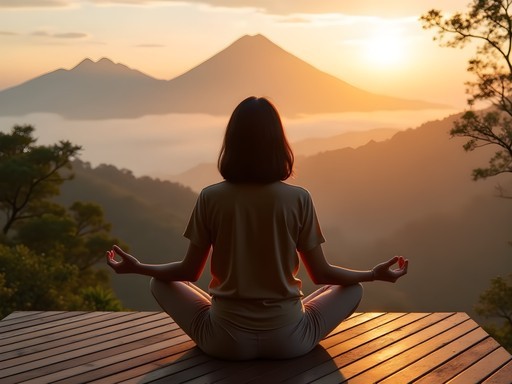


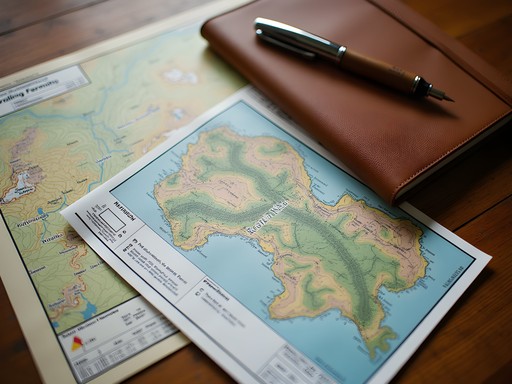
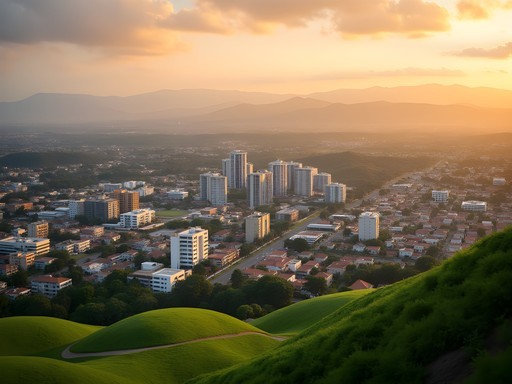
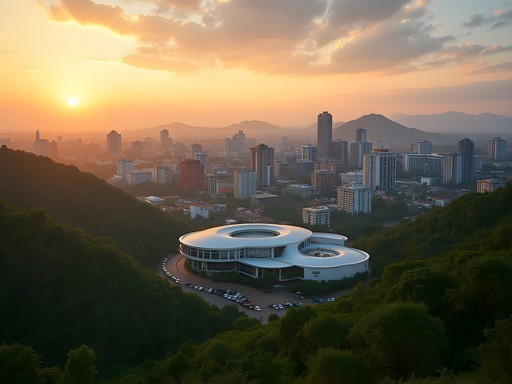
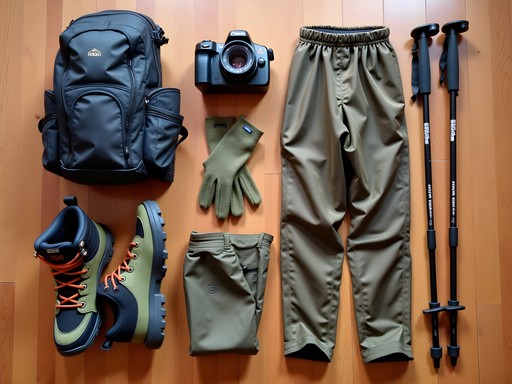
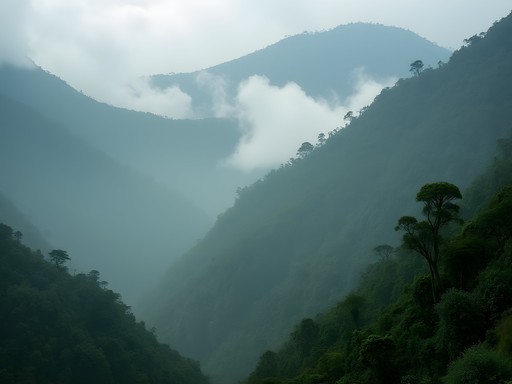
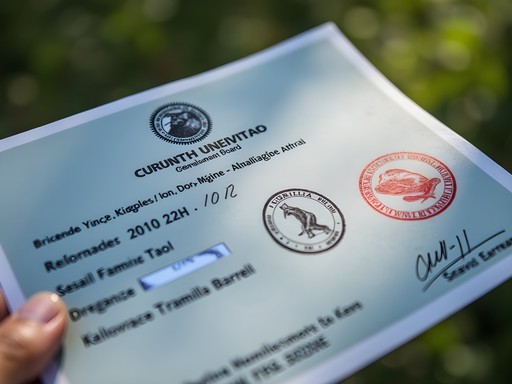
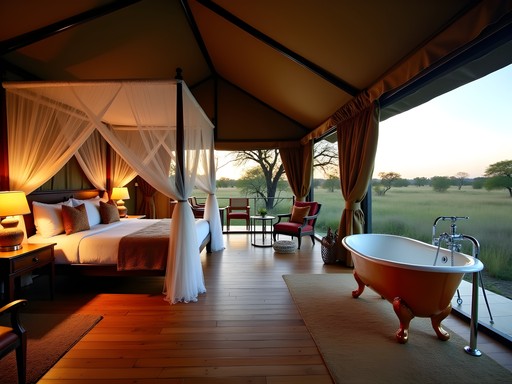
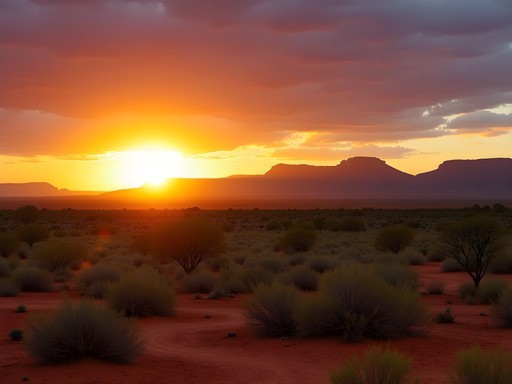
Comments
oceanrider
That silverback photo is unreal!
luckylegend
Can you do this trek if you have knee problems? I'm 52 and really want to do this but worried about the terrain.
nomadtime
They have porters who can help support you and you can hire a sedan chair if needed. Talk to the park when booking - they're really accommodating.
Casey Andersson
This brought tears to my eyes, Brenda. I visited Rwanda three years ago and your description of that silverback encounter transported me right back. There's something about being in the presence of these magnificent creatures that strips away all the noise of modern life. I stayed at Bisate Lodge and they have an incredible reforestation program - planted over 400,000 indigenous trees. The intersection of luxury and conservation in Rwanda is really something special. Did you get a chance to visit the Dian Fossey grave site? That hike is emotional in a completely different way.
oceanrider
Bisate Lodge looks incredible! How much per night if you don't mind sharing?
Casey Andersson
It's around $1,200-1,500 per night depending on season, but includes all meals, drinks, and activities. Splurge-worthy for sure!
wanderseeker
WOW WOW WOW! Your photos are stunning!! I've been dreaming about this trip for years. The part about finding yourself really resonated with me. Sometimes we need to step completely out of our comfort zone. Did you feel safe traveling solo as a woman?
Brenda Takahashi
Completely safe! Rwanda has a strong focus on safety and I never felt uncomfortable. The guides are professional and the tourism infrastructure is excellent.
nomadtime
Great post! Just a heads up for anyone planning this - book your permits at least 6 months in advance, especially for high season (June-Sept). They sell out fast. Also the Virunga Lodge mentioned in the post is amazing but there are cheaper options in Musanze if you're on a budget.
Hunter Thompson
Brenda, this is absolutely brilliant! I did the Uganda gorilla trek last year and it completely changed me. The way you captured that moment of connection with the silverback gave me chills - I know exactly that feeling. Question though: how did you find Rwanda compared to Uganda for solo travel? I found Uganda incredibly welcoming but I've heard Rwanda is even more organized for tourists. Also, did you do the golden monkey trek? Totally underrated experience!
Brenda Takahashi
Hunter! Rwanda felt incredibly safe and well-organized - almost surprisingly so. Kigali is spotless and the infrastructure is excellent. I didn't do golden monkeys this time but now I'm kicking myself after hearing your recommendation!
tripchamp
How much did the gorilla permit cost? And do you need to be super fit for the trek?
Brenda Takahashi
Permits are $1,500 USD. Fitness-wise, moderate is fine! The trek can be anywhere from 30 minutes to 4 hours depending on where the gorilla family is that day. They assign groups based on fitness levels too.
tripchamp
Thanks! That's actually more doable than I thought.
wildexplorer
This is incredible! Adding to my bucket list right now.
Jean Wells
Brenda's experience mirrors my own transformative journey in Rwanda last year. At 59, I was concerned about the physical demands, but the guides were exceptional at pacing the trek appropriately. What struck me most was the juxtaposition of Rwanda's tragic history against its remarkable present-day conservation success. The country's commitment to protecting these magnificent creatures while simultaneously healing itself is a profound lesson in resilience. For those considering this journey: the psychological impact of sitting quietly among gorillas who accept your presence cannot be overstated. It fundamentally shifts something in your understanding of our place in the natural world. Brenda captured this beautifully in her reflection on 'recalibration of perspective.'
backpackone
Thanks for sharing this Jean. Did you visit any other parks in Rwanda? Wondering if I should add Akagera to my itinerary or just focus on Volcanoes.
Jean Wells
Absolutely visit Akagera if you have time! It's completely different - savanna landscape with elephants, giraffes, and even lions. Less crowded than other safari destinations too. I'd recommend at least 2 days there.
smartlife
This looks amazing but also intimidating for a solo traveler. Did you feel safe the whole time? And was the permit cost worth it?
Brenda Takahashi
Absolutely felt safe! Rwanda is incredibly well-organized for tourism, and the guides are professional and attentive. As for the permit cost - yes, it's steep, but knowing the money goes directly to conservation and local communities made it worth every penny. The experience itself is simply priceless.
Venture X
Premium card with 2X miles, $300 travel credit, Priority Pass